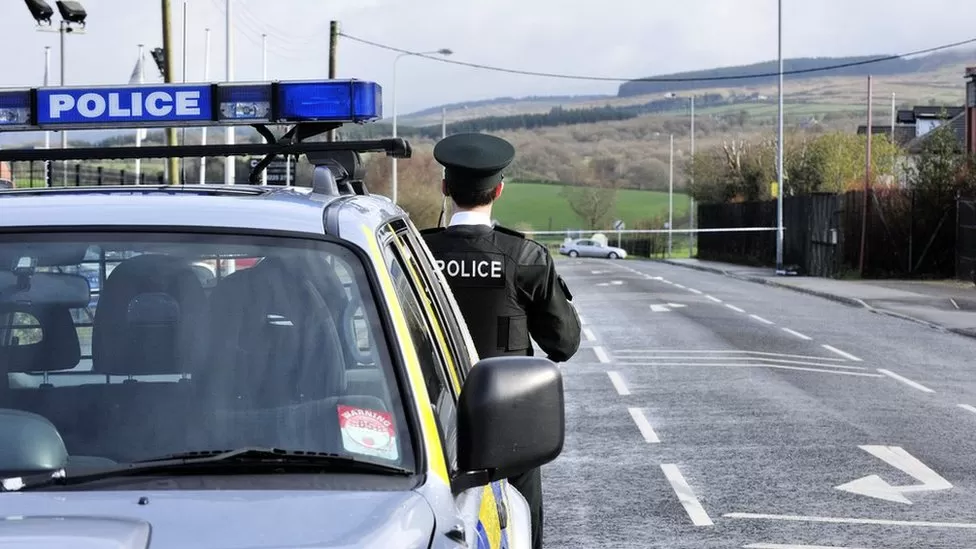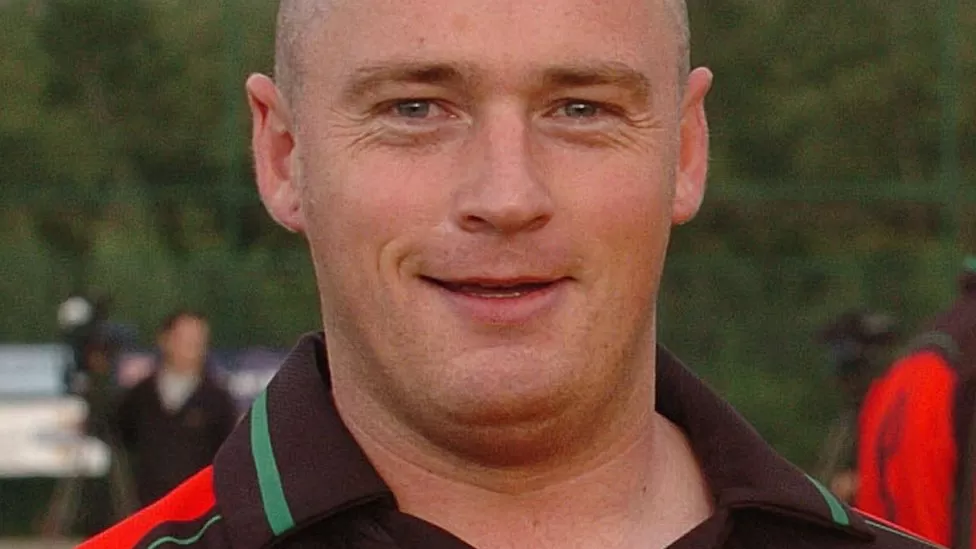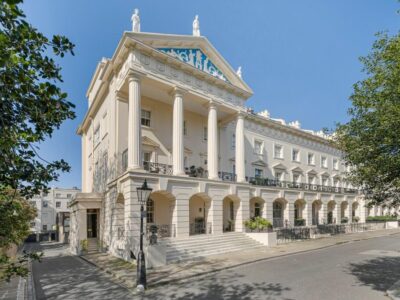“We were now looking over our shoulder, but now even more so.” “This has done half the job for the people who want to target officers.” These are some of the remarks from serving and recently retired members of the Police Service of Northern Ireland (PSNI) who spoke to the BBC this week. They were articulating the fearful fallout from the unforeseen data breach – in which the names of all 10,000 PSNI staff were published on a website. The words of the interviewees were spoken on TV and radio by BBC producers. The media is used to taking steps to protect the identities of police officers in this part of the UK – in recognition of the security threat.
PSNI staff themselves are accustomed to checking under their cars every day – in case a bomb has been put there – and they vary their route to work. Police everywhere face dangers in the course of doing their job. But in Northern Ireland, the risk is at a different level – because of the presence of paramilitary organisations who actively aim to take the lives of people in the security forces. The potential implications for the safety of PSNI members is of course the most serious issue in the data leak – but there are other important, possible consequences too. Policing in Northern Ireland is tied up with the politics of the peace process. During the conflict known as the Troubles, 302 officers were killed over three decades.

Most were murdered by the Irish Republican Army (IRA) – the main paramilitary group which wanted to take Northern Ireland out of the UK by force. Northern Ireland had been policed since its foundation in 1922 by the Royal Ulster Constabulary (RUC), the vast majority of members being Protestants – a marker they were from the community which supported the union with Britain. The Good Friday Agreement, which largely ended the violence in 1998, promised reforms to policing.
Dissidents and splinter groups
A commission led by the former Conservative Party chair, Lord Patten, recommended big changes and, in 2001, the PSNI was created – designed to be an organisation which could gain the confidence of Irish nationalists, as well as unionists. This involved a policy of ’50:50 recruitment’, in an effort to substantially increase the number of Catholics – who tended to be from the nationalist community.

In 2007, the political party linked to the IRA – Sinn Féin – endorsed the PSNI before it went into a power-sharing devolved government. But that decision was not accepted by a minority of republicans – referred to as “dissidents”. The splinter groups from the IRA continued to target the police. Dissident republicans also wanted to discourage people from the nationalist community from joining the PSNI – to try to disrupt a key aspect of peacebuilding. It was acknowledged by nationalist politicians and others that Catholic officers were particularly vulnerable.
In 2010, Constable Peadar Heffron suffered life-changing injuries and Constable Ronan Kerr was killed in separate bomb attacks. They were both keen players of Gaelic football – a sport which is hugely popular within the nationalist community. Its governing body once banned members of the security forces in Northern Ireland from playing – such was the severity of community divisions. The lifting of that ban – and the establishment of a PSNI Gaelic football team, which Constable Heffron captained – was seen as a symbol of progress.
Hiding the job from family
After the data leak, the group which represents Catholics in the PSNI has said one officer has decided not to turn out for their Gaelic games club this week because they have kept their job a secret, and they are now worried their occupation may be known. It is not uncommon for officers of all backgrounds to decide not to tell people – even family and friends – what they do for a living. Before the data leak, recruitment figures were showing the PSNI had challenges attracting applications from people from the nationalist community.

They now make up about a third of officer ranks. Census figures last year indicated 45% of the population of Northern Ireland had a Catholic background. Politicians and independent members of the Policing Board – an oversight body set up during the policing reforms – have also highlighted concerns about how the data breach could affect undercover officers. For such officers, secrecy is all the more important.
PSNI intelligence specialists have links with the security service MI5. That is one of the reasons why PSNI commanders are discussing the course of action after this week’s events with security chiefs and the government in London. Budgets may come under more pressure, if compensation claims move forward or PSNI staff need to be given extra support with their personal security. Police are assessing a claim by dissident republicans that they have the leaked information. For the PSNI Chief Constable Simon Byrne, and his leadership team, this is the most unexpected of crises, with still unpredictable repercussions.
![]()





